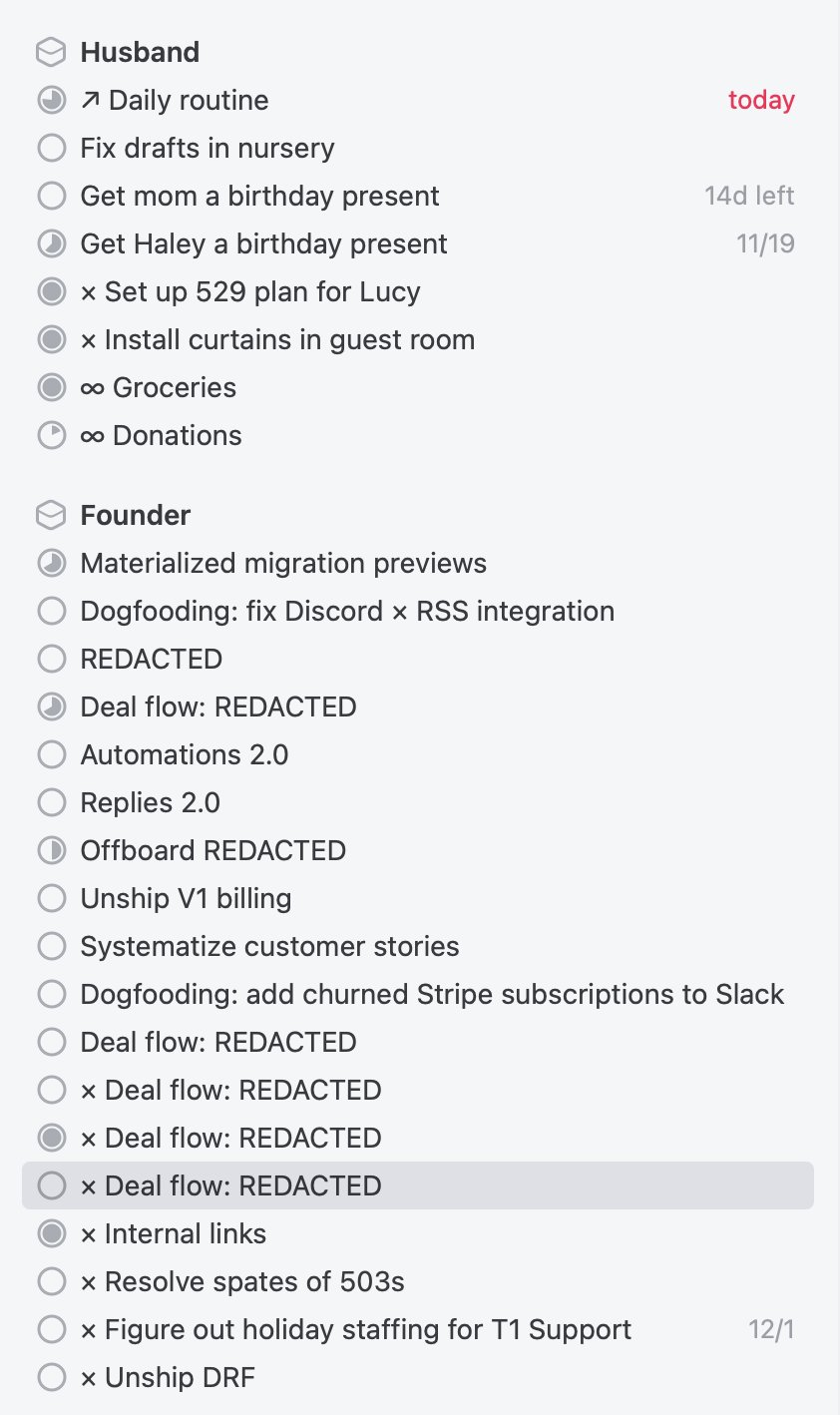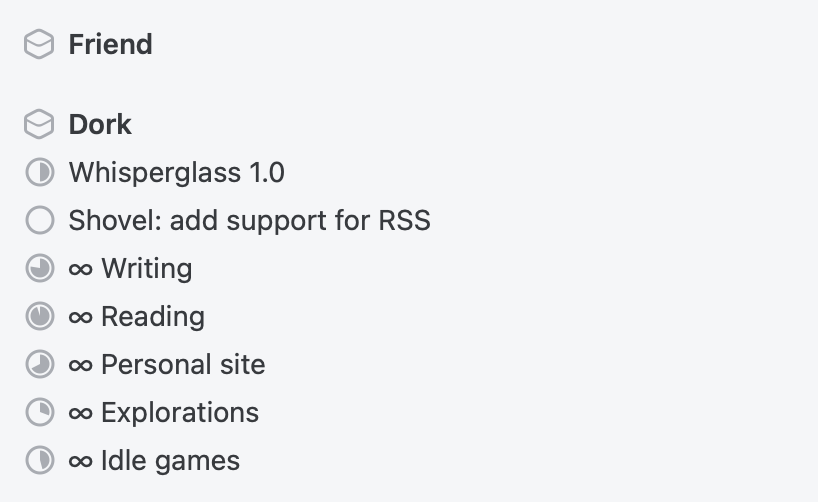My approach to GTD and PKM
One pernicious thing with writing about productivity and knowledge systems: you only change systems that aren’t working, and you tend to write about things during times of change. So most writing about productivity systems stem from people whose systems have failed them.
It is with this ironic prologue that I answer a question I've received from a few folks in reference to my usesthis.com interview:
Curious if you could share a bit more about how you use Things & Obsidian? I love Things but feel like I’m kind of holding it wrong. And haven’t yet been able to get into Obsidian.
Things
I have used Things for six years now; as of today, this is what my setup looks like.
I think Things is pretty much the perfect amount of organizational detail for most people: it encourages just the right amount of planning and administrivia without letting you delude yourself into thinking nested projects and deep meta-gardening of your work is anything more than cosplay.
The only change in how I use Things over this time has been how I organize my "Areas". Running a company, co-running a holding firm, being an active husband and father — my days and my schedules are much less neatly organized than they used to, and at any given point in time I have the temporal freedom to work on anything. This freedom is nice, but also a little bit difficult to wrangle: how do I know if I should be working on a new marketing initiative or setting up a 529 for lucy? Breaking stuff up into my core identities as a person helps (though this is mostly just syntactic sugar around Home / Work / Side projects / Leisure, if we're being honest.)
Beyond that, Things' guide is really good. The only other bits of flavor I'd add:
- Tags are useful in small doses. I only really use two:
PhoneandErrand. - Only use deadlines for things that are actually exogenous (customer-facing features, government regulations, birthdays, etc.) Otherwise, you run into a kind of urgency fatigue.
- Being a founder means having a lot of stuff in the air, whether due to delegation or being blocked. For things that I'm waiting on in a non-temporal way, I prefix those projects with
×. - Conversely, "unfinishable projects" (blog posts to read, writing ideas, etc.) I prefix with
♾️.
Obsidian
I don't use Obsidian any more! I really love/loved it: it is a delightful piece of software to use, but everything I put into it I needed to share with other people (both technical and non-technical) — so off to Notion it went.
("But Obsidian for Teams is a thing", you might say! This is technically but not really true; it's not something that I can feasibly put in front of a tier one CS rep and expect them to be able to both consume and edit.)
("What about the stuff that you don't need to share with anything else?", one might ask. I posit to you: this information probably does not need to be recorded, and you probably have better things to do with your time.)
I use Notion for this now, and Notion is... fine. It gets the job done; everyone knows how to use it, cross-linking is really useful, the application is slower than I would prefer. It is not a decision or product that feels like it makes a huge impact in my life.
The goal is to do good work
In general, I am much more suspicious of PKM as a field than ever before. Andy Matuschak puts it well:
Most people who write about note-taking don’t seem particularly accomplished in their own fields, whatever those may be. In fact, most such writers aren’t applying their notes to some exogenous creative problem: their primary creative work is writing about productivity. These writers offer advice on note-taking to help scientists and executives with the challenges of their work, but the advice was developed in a context disconnected from those external realities.
My information-related problems in 2024 can be summed up in three ways:
- I am often juggling dozens of projects of varying cadence, urgency, and aperture, and it's easy for me to forget certain things.
- I have a lot of internal/tribal knowledge that doesn't neatly fit into some existing repository (codebase, blog, Slack) but should be shared with others.
- It's easy for me to overfocus on short-term urgent work to the detriment of longer-term, more important but less time-sensitive work.
These problems were not the same as my problems in 2020; I suspect they will not be the same as my problems in 2028.
Solutions are only good insofaras they solve your problems; before committing to Yet Another App or Yet Another Methodology, ask yourself if really what you need is eight hours of sleep, a long walk on a sunny day, or a particularly good Manhattan and a particularly engrossing book. These things cannot be bought on Gumroad for $49 (with a cohort-based video series for an additional $299), but tend to be much more efficacious.

